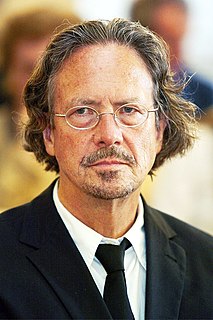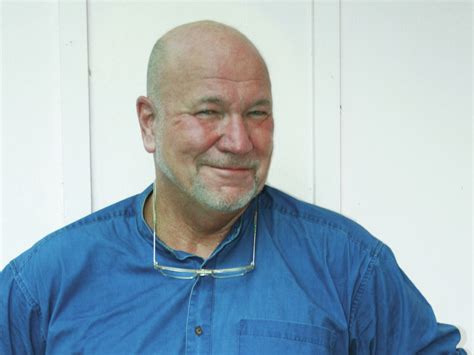A Quote by Peter Handke
Morality is the least of my concerns. To me, morality in a society that - however moral its pose - is hierarchically organized is simply a lie, an alibi for the inequalities that exist in society.
Related Quotes
Society mediates between the extremes of, on the one hand, intolerably strict morality and, on the other, dangerously anarchic permissiveness through an unspoken agreement whereby we are given leave to bend the rules of the strictest morality, provided we do so quietly and discreetly. Hypocrisy is the grease that keeps society functioning in an agreeable way, by allowing for human fallibility and reconciling the seemingly irreconcilable human needs for order and pleasure.
We're always projecting our moral categories on things. I think that's inevitable. But capitalism places no particular value on morality. Morality in the market is enforced by contract and regulation and law, because morality is understood to be in conflict with the motive force of greed and accumulation.
Mind, I am not preaching anything contrary to accepted morality. I am not advocating free love in this or any other case. Society must go on, I suppose, and society can only exist if the normal, if the virtuous, and the slightly deceitful flourish, and if the passionate, the headstrong, and the too-truthful are condemned to suicide and madness.
When we come to the moral principles on which the government is to be administered, we come to what is proper for all conditions of society. Liberty, truth, probity, honor, are declared to be the four cardinal principles of society. I believe that morality, compassion, generosity, are innate elements of the human constitution; that there exists a right independent of force.
where Nietzsche's response to the equation of socialism and morality was to question the value of morality, at least as it had been customarily understood, economists like Mises and Hayek pursued a different path, one Nietzsche would never have dared to take: they made the market the very expression of morality.
I'm not saying that atheists can't act morally or have moral knowledge. But when I ascribe virtue to an atheist, it's as a theist who sees the atheist as conforming to objective moral values. The atheist, by contrast, has no such basis for morality. And yet all moral judgments require a basis for morality, some standard of right and wrong.






































